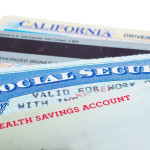

Many people know that identity theft is a national problem. However, did you know that identity theft is more common among kids, teenagers, and college students than any other age group? In fact, a Carnegie Mellon University study of more than 40,000 children found that kids under the age of 18 were twice as likely as their parents to be victims of identity theft.
What is identity theft?
According to the Federal Trade Commission (FTC), it is a felony offense, where a fraud or scam is committed or attempted by using another person’s identifying information without their permission.
How do identity thieves work?
Identity thieves don’t need much information to steal someone’s identity. A name, address, Social Security Number, and birth date are more than enough for a stranger to pretend to be you. Identity thieves prefer to steal a teen or college student’s identity because they usually have blank credit reports.
Common ways identity thieves can steal your personal information. They can:
- Hack into your computers or phones, which contain a lot of personal information and passwords, and steal the data.
- Send a real looking email that directs you to a phony website and asks for your personal and financial information (commonly referred to as phishing).
- Steal your purse or wallet, which contains your debit and identification cards. Thieves don’t just want your cash; they also want your license, debit and credit cards, and your Social Security Number.
How do I protect myself from identity theft?
You can lower your risk of being a victim of identity theft. Here’s how:
What should I do if I think I am a victim of identity theft?
- Tell a parent(s), guardian or other trusted adult immediately.
- File a police report with your local police department.
- Call one of the three major credit-reporting companies (Experian, Equifax, or TransUnion). The agency will not only notify the other two agencies, they will also place a fraud alert on your account.
- Call your credit card company if you notice any chargers on your bill that you did not make.
- Close any accounts or credit cards that you know have been used by identity thieves.
- File a complaint with the Federal Trade Commission (FTC). The FTC has a database that the police use to find identity thieves. The FTC can help you find out what the next steps are. The FTC toll free hotline is: 877-IDTHEFT.
- Check out these resources from the Better Business Bureau: http://www.bbb.org/chicago/get-consumer-help/identity-theft/resources/
Source: Read Full Article